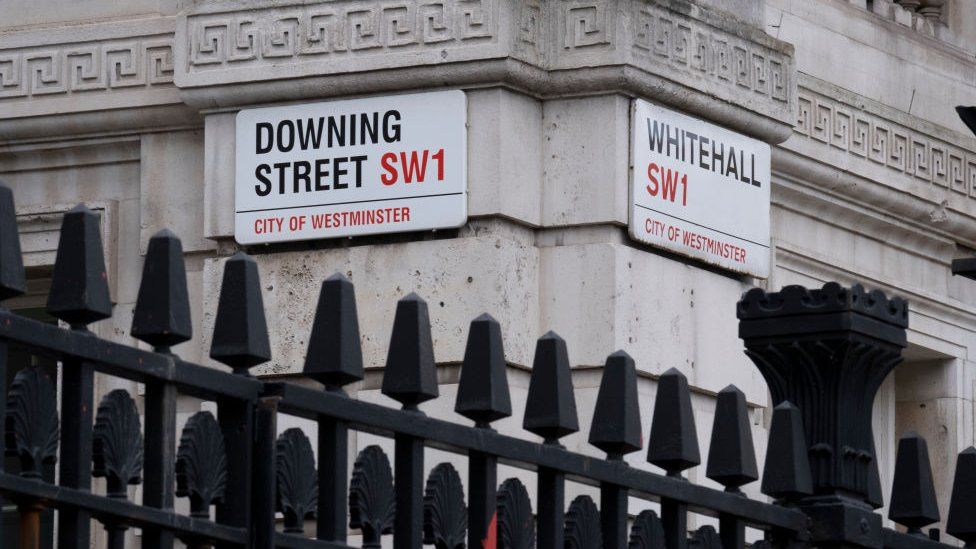ARTICLE AD BOX
 Image source, Getty Images
Image source, Getty Images
The government could save £35bn a year without affecting frontline services by tackling inefficiencies, a former Treasury minister has said.
Lord Agnew also said there were 60,000 people in the civil service doing jobs that did not need to be done.
He added that there were 5,000 civil servants in the Department of Health who simply "talk to each other".
The FDA union, which represents civil servants, said numbers had grown due to Brexit, Covid and the war in Ukraine.
"Any politician who pretends they can make draconian cuts to the civil service without impacting public services is being dishonest with voters," said union leader Dave Penman.
Lord Theodore Agnew - who dramatically resigned from government at the start of the year - was speaking at a Conservative Party conference event about the civil service entitled "Servant or master? Who's really running Whitehall?"
He said that if the government was aiming to "balance the books over the next couple of years, the free hit is from the inefficiencies in government - a very simple number - probably about £35bn a year without taking anything away from the frontline."
"The problem with it is, it takes agonising attention to detail and staying power and that is the thing - with the greatest respect to a lot of politicians - they are not terribly good at."
As an example, he said it had taken him two years to remove a course on macro aggression from civil service training.
"It is a huge challenge, but the win is there and I think the government is waking up to the potential."
Lord Agnew resigns accusing the Treasury of having "little interest in the consequences of fraud to our society"
Speaking on the same panel, former Cabinet Office minister Lord Maude said there were "some fantastic civil servants" but they were working in a "fundamentally broken" system.
He added that ministers "aren't prepared for what they are being asked to do" and needed better training, particularly in managing civil servants.
He said the current situation whereby someone was "randomly plucked from the backbenches", given a government job and told they would "pick it up" was "not a way to run a successful government".
Lord Maude also echoed Lord Agnew's concern about the size of the civil service and added that reducing the headcount could lead to better wages for the remaining workers.
In May of this year, the government said it wanted to cut up to 91,000 civil service jobs and Downing Street did not ruled out using compulsory redundancies as part of the reductions.
In a letter seen by the BBC, the Cabinet Secretary Simon Case said the aim was to return to 2016 staffing levels within three years.

 2 years ago
57
2 years ago
57








 English (US) ·
English (US) ·